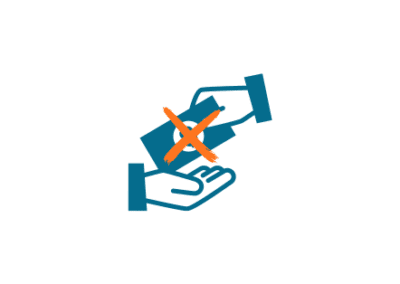Staff scheduling is an important process in any organization, but in hospitals and clinics, it’s vital. It is critical to have sufficient staff that are qualified, at the right place, and scheduled for the right time.
The health and safety of patients and the staff themselves depend on a reliable scheduling process. The need for a clear and simple scheduling process has become even more urgent with the COVID-19 pandemic.

Software has made the process of healthcare staff scheduling much easier and far more efficient. Below, we have addressed 4 ways in which scheduling software solves common staff scheduling problems that hospitals and clinics face. Even if your organization still schedules manually, the methods discussed are bound to be of use to you too.
4 Healthcare Staffing Problems Solved by Scheduling Software
1. Preventing Burnout
The mental, physical and emotional well-being of hospital and clinic staff is of the utmost importance, especially during COVID-19.
Frontline healthcare staff have always been of great importance to society as a whole. This pandemic has further proved not just their value and importance, but also their vulnerability. A troubling quote from the Globe and Mail states:
“Early research suggests high rates of depression, anxiety and burnout” due to COVID-19. (1)
This quote emphasizes the importance of establishing reasonable staff schedules that fit both organizational and staff needs. An organized, clear, flexible scheduling process backed by powerful software functionality can help management effectively schedule hospital staff. A schedule that staff are happy with helps achieve a healthy work-life balance and avoid burnout and mental strain.
Software achieves this by following a rules-based engine. This allows staff to work up to a certain numbers of hours. It also automatically fills out schedules according to an organization’s customized anti-burnout criteria. It can be taken a step further by allowing staff to choose shifts they want, affording greater flexibility and staff empowerment.
2. Handles Sudden Changes Easily
Healthcare organizations are well used to sudden changes and are designed to thrive in emergency situations. However, scheduling can all too easily be something that gets in the way, rather than helps.
Increased demand and workload inevitably puts significant strain on schedulers and schedulees. But with scheduling software, it’s simple to handle these sudden changes.
Last-minute illnesses, sudden surges in demand, shift changes due to quarantine requirements or contact tracing, are all factors that cause disarray with manual schedules. But these are tackled quickly and easily with a software scheduling system.
The software can autofill missed or canceled shifts, communicate last-minute changes to staff, and collect relevant, useful data regarding certain staff and patients on a particular ward. Often in mere seconds. Try doing that with a spreadsheet!
3. Remove Administrative Burdens
Scheduling is a time-consuming task. When you consider the fundamental role that scheduling plays in hospitals and clinics, it’s easy to forget the considerable administrative tasks that often go on in the background.
Setting a schedule can take hours or days and are frequently responsible for administrative headaches, stress, and confusion. This spreads outward, affecting every employee.
But it doesn’t have to look like this. A modern scheduling software solution will allow management to automatically create daily, weekly, or monthly schedules in seconds, enabling them to free their minds up to focus on what’s important: their people.
Taking away the manual effort and focusing on the important parts of running an organization is what we help healthcare providers do on a daily basis.
4. Improves Communication
When healthcare organizations experience huge changes or crisis situations, one of the most important factors to consider is the concept of communication and its important role in change and crisis management. With a manual scheduling process, the scheduler must communicate any changes in the schedule to the relevant staff, managers, and patients, often one-by-one.
This obviously presents a huge administrative burden. In particular, there is large potential for miscommunication which very often results in negative consequences for the hospital or clinic. These situations include missed shifts, shortages of qualified staff, or understaffing — all of which cause disruption in day-to-day operations.
With the use of scheduling software, any changes in shifts or urgent messages to staff can be instantly broadcast to any number of employees, and will be immediately available to them via phone or web browser. The tangible benefits of this level of instant communication are abundant, including a more efficient process, happier and more motivated staff, and clarity in terms of guidance and direction.

Long time customer, Richard Koster of Fours Seasons Healthcare has stated the following regarding the importance of communication during the COVID-19 pandemic:
“It’s business as usual here at Four Seasons Healthcare. The fact that we have the best scheduling software in the business makes regular communication with our caregivers easy and provides huge comfort to them.“
At Celayix, we make scheduling easy.
We know how our scheduling software solves problems for healthcare organizations, particularly during pandemics like COVID-19, and we’re eager to share it. If you’d like to learn more about how we help healthcare providers tackle scheduling complexity, just click here.
Alternatively, feel free to get in touch if you’d like to speak to one of our scheduling experts.
Take care and be safe.




